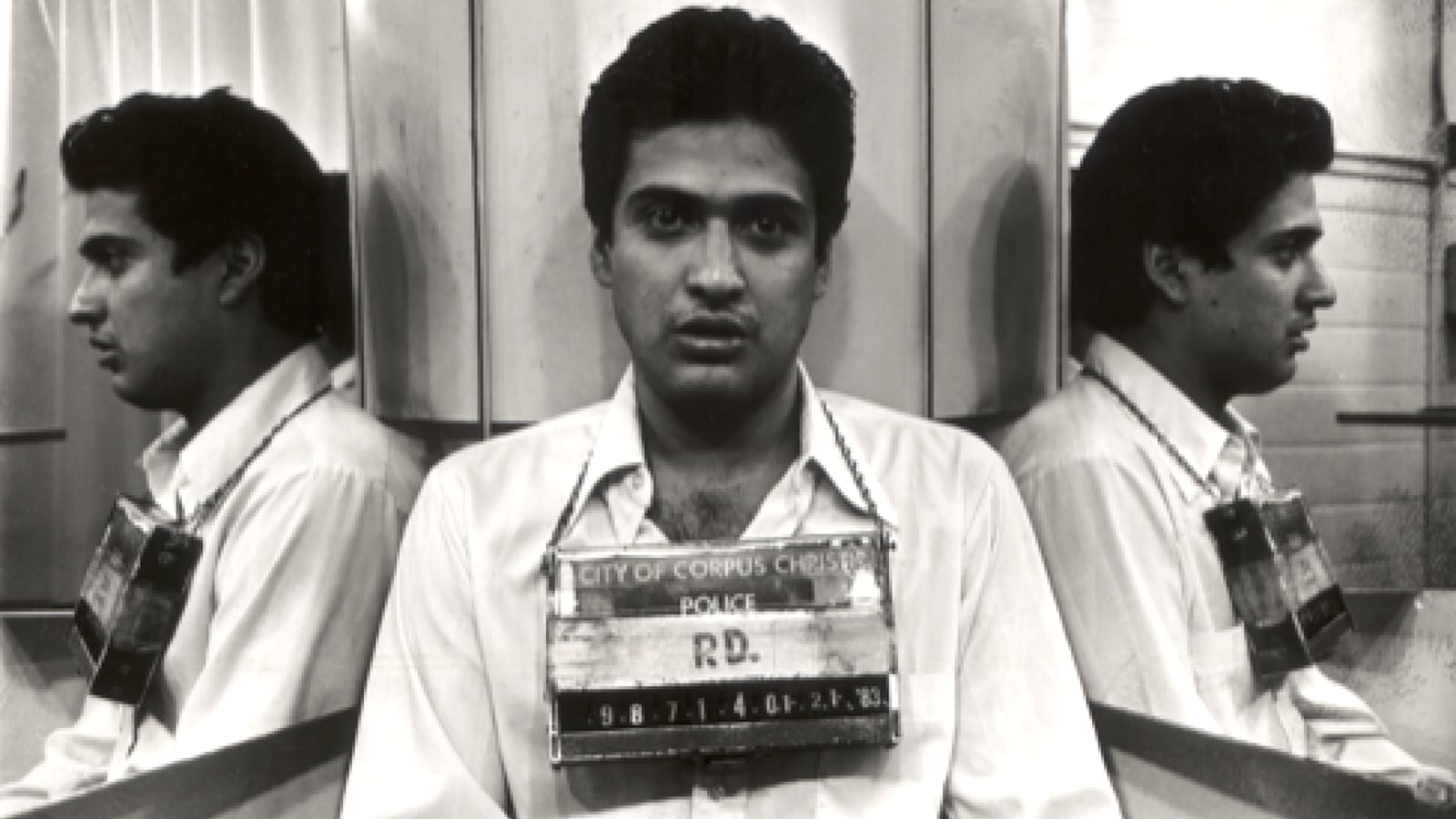The Phantom is an anti-death penalty documentary that makes a compelling case that the wrong man was convicted—and put to death—by the state of Texas in 1983. It’s a portrait of criminal justice system imperfections, although to its detriment, it never quite pinpoints all the reasons why things didn’t work out correctly. Tackling issues of racial and economic inequity, as well as law enforcement and prosecutorial sloppiness, it puts forward a collection of intriguing theories as to what really took place, yet still raises more questions than it can ultimately answer.
Premiering at the Tribeca Film Festival in advance of its theatrical debut on July 2, writer/director Patrick Forbes’ film revisits the night of Feb. 4, 1983, when Wanda Lopez, who was working at the Sigmor Shamrock Gas Station in Corpus Christi, Texas, made a frantic 911 call. The Phantom replays that audio recording, in which Lopez describes a young Hispanic man brandishing a knife, first outside her store and then directly in front of her—a robbery scene that ends with her screaming as she’s brutally stabbed to death. Police responded swiftly, and a 45-minute manhunt followed, during which they discovered Carlos DeLuna hiding beneath a nearby car, shirtless and with $149 dollars in his front pocket.
DeLuna was positively identified by two separate eyewitnesses, and that, along with his record of minor criminal infractions, was enough to get him charged with murder and put him on the path to Death Row. DeLuna denied having killed Lopez, instead asserting that another man—Carlos Hernandez—was the real perpetrator. In a new interview, assistant district attorney Steve Schiwetz claims that he and others attempted to find this individual, but to no avail. Given that DeLuna had originally lied about his alibi on the night of Lopez’s murder, his story about Hernandez came across as a desperate fabrication, and at trial, Schiwetz dubbed Hernandez a “phantom” born from DeLuna’s imagination. Even though DeLuna wasn’t covered in any of Lopez’s blood, nor was there any other physical evidence tying him to the slaying, he was convicted of murder and sentenced to death by lethal injection, which was carried out on Dec. 7, 1989.
The Phantom’s early going is spent depicting this as a rather open-and-shut case, detailing how DeLuna’s own falsehoods undercut his credibility, and how the absence of another believable narrative all but doomed him—especially given the circumstances in which he was found by cops. Director Forbes does this through a rather straightforward combination of dramatic recreations, talking-head interviews, and archival clips that don’t generate much suspense, and his decision to briefly have Schiwetz and others read their testimony in the courtroom where the trial was held is awkward and affected. Commentary from KZTV reporter Karen Boudrie-Evers about her coverage of the trial, and ensuing pen-pal relationship with DeLuna, is similarly ho-hum, revealing little other than DeLuna’s insistence on his innocence, which he proclaimed right until his death.
To no great surprise, Forbes’ film sets up DeLuna’s guilt as definitive, only to then expose its shortcomings. Central to this mission is the bombshell that, as it turns out, there was a Carlos Hernandez, whose existence was proven by a private investigator hired by Columbia law professor Jim Liebman during his own examination into possible miscarriage-of-justice cases in Texas, which was notorious under then-governor George W. Bush for its high number of executions. Moreover, Hernandez was a very bad guy, with a rap sheet a mile long, a reputation for chilling violence, and an ability to scare others into keeping their mouths shut.
Between DeLuna’s accusation that Hernandez was the real killer, the two suspects’ physical similarities, and the anecdotes relayed here by Hernandez’s former girlfriends—horror stories involving assault, rape, and the murder of another young woman whom he left with an X carved across her back—it’s reasonably clear that Hernandez killed Wanda Lopez, and that DeLuna was merely in the wrong place at the wrong time (he was reportedly at the gas station with Hernandez, since they were friends). The question that naturally arises, then, is why didn’t prosecutors, or DeLuna’s defense attorney, do more to find Hernandez? The Phantom’s contention is that it was due to lawyers, cops, judges, and jury members viewing Hispanics as interchangeably disposable second-class citizens. According to the film, everyone figured that DeLuna was a solid suspect, and in this instance, that was good enough.
The not-so-subtle implication of The Phantom is that DeLuna was railroaded by a racist society and system, except it stands to reason that—faced with two possible Hispanic killers—even racists would want to catch the right one. Hernandez supposedly bragged about getting away with Lopez’s murder to many, laughing about how the cops nabbed his “Tocayo” (i.e. a similar-looking man with the same name), and Liebman states that the reason Hernandez was never charged was because he was a police informant. Schiwetz and his colleague Ken Botary both deny that was ever the case, but even if it was, that too raises a nagging question: what intel could a cretin like Hernandez have provided law enforcement that would have outweighed the fact that he was a stone-cold killer, rapist and all-around monster who posed an immediate danger to the public at large? The film, alas, has no answer, nor does it have any other convincing explanation for why DeLuna didn’t more forcefully implicate his buddy Hernandez, or why anyone would have preferred DeLuna, rather than Hernandez, to go down for the crime.
Consequently, The Phantom makes a persuasive argument that DeLuna was wrongly executed for a crime he didn’t commit yet fails to come up with a definitive account of what caused that to take place—save, that is, for general shoddiness on the part of investigators and lawyers. That doesn’t neuter its point that, because the system is inherently flawed due to human error, capital punishment invariably leads to tragic mistakes. But it does diminish the comprehensiveness of its analysis, which resorts to big-picture soundbites that skim over the story’s thornier complications and strives to make grander points about racial injustice that aren’t fully supported by the particulars of this case.


